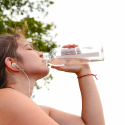- Europa
-
- Amstetten(7)
- Bad Schallerbach(1)
- Baden(4)
- Berg(1)
- Braunau am Inn(5)
- Bregenz(3)
- Bruck an der Mur(1)
- Graz(4)
- Hartberg(1)
- Innsbruck(5)
- Kemmelbach(1)
- Kitzbühel(4)
- Klagenfurt(5)
- Krems an der Donau(1)
- Kufstein(5)
- Leibnitz(1)
- Lienz(1)
- Liezen(1)
- Linz(5)
- Oetz(1)
- Punitz(1)
- Radstadt(1)
- Salzburg(5)
- St Polten(2)
- Steiermark(1)
- Steyr(1)
- Steyregg (1)
- Traun(3)
- Vienna(26)
- Villach(5)
- Völkermarkt(1)
- Wels(5)
- Wien(1)
- Wiener Neustadt(4)
-
- Aalst(1)
- Aarschot(2)
- Affligem(1)
- Anderlecht(5)
- Antwerp(11)
- Antwerpen(1)
- Arlon(6)
- Ath(2)
- Aubange(5)
- Bastogne (2)
- Blankenberge (1)
- Bruges(5)
- Brussels(15)
- Charleroi(5)
- Deinze(3)
- Dendermonde(1)
- Diest(2)
- Etterbeek(5)
- Geel(1)
- Genk(5)
- Gent(6)
- Geraardsbergen(1)
- Grimbergen (2)
- Hasselt(5)
- Heusden- Zolder(2)
- Ieper(1)
- Izegem(1)
- Knokke(4)
- Kortrijk(2)
- La Louviere(2)
- Leuven(5)
- Liege(4)
- Limburg(4)
- Lommel(1)
- Mortsel(1)
- Oostende(1)
- Turnhout(1)
-
- Chelyabinsk(1)
- Dubna(4)
- Gelendzhik(1)
- Irkutsk(1)
- Kaliningrad(1)
- Kazan(4)
- Krasnodar(3)
- Krasnoyarsk(1)
- Maykop(1)
- Moscow(50)
- Nizhny Novgorod(4)
- Novosibirsk(1)
- Omsk(1)
- Penza(1)
- Rostov-on-Don(2)
- Saint Petersburg(13)
- Samara(1)
- Saratov(1)
- Serpukhov (2)
- Sevastopol(3)
- Sochi(5)
- Stavropol(1)
- Surgut(1)
- Tyumen(2)
- Ufa(2)
- Vladivostok(3)
- Yekaterinburg (11)
-
- Alicante(8)
- Barcelona(113)
- Benalmadena(1)
- Benidorm(7)
- Castellón de la Plana(1)
- Denia(1)
- Estepona(1)
- Fuengirola (3)
- Ibiza(49)
- Jerez de la Frontera(1)
- Lanzarote(1)
- Las Palmas de Gran Canaria(5)
- Madrid(57)
- Malaga(9)
- Marbella(48)
- Murcia(1)
- Oviedo(1)
- Palma de Mallorca(48)
- Puerto Banus(3)
- Seville(1)
- Tarragona(1)
- Tenerife(7)
- Torrevieja(3)
- Valencia(9)
- Vigo(1)
- Zaragoza(1)
- Worldwide
Cardiologist's Tips for Heart Patients in Hot Weather
 Impact of Heat on Heart Health
Impact of Heat on Heart HealthHigh temperatures can be particularly harmful to individuals with heart conditions. For those with cardiovascular issues, the heat demands special care and adjustments to daily routines.
How Heat Affects the Heart
"When temperatures rise, the heart works harder to cool the body down. Each half-degree increase above normal can cause the heart rate to increase by about 10 beats per minute," explains a cardiologist. This increased heart rate puts additional strain on the heart, which is especially problematic for individuals with conditions like coronary artery disease, heart failure, or arrhythmias.
Sweating increases in the heat, potentially leading to dehydration. Dehydration thickens the blood, making it harder for the heart to pump and raising the risk of blood clots. Additionally, some heart medications, such as diuretics and beta-blockers, can impair the body's ability to regulate temperature. Heart patients are more susceptible to heat stroke, a life-threatening condition where the body overheats and loses its ability to cool itself. Without immediate medical attention, heat stroke can be fatal.
Tips for Heart Patients in Hot Weather
To cope with high temperatures, heart patients should make several adjustments:
Modify Your Schedule: Shift physical activities to cooler parts of the day, such as early morning or late evening.
Stay Indoors: Avoid direct sunlight and spend time in air-conditioned or well-ventilated spaces.
Use Cooling Methods: If air conditioning or fans are unavailable, use damp cloths on the head, neck, wrists, and under the knees.
Opt for Cool Showers: Take cool (not icy) showers to help lower your body temperature.
Dress Appropriately: Wear light, breathable clothing made from natural fabrics like cotton or linen. Use a hat to protect your head from the sun.
Hydrate Well: Drink more fluids than usual, even if you don’t feel thirsty. Choose plain mineral water over sugary drinks or juices.
When to Seek Medical Help
Heart patients should contact a doctor at any sign of serious discomfort, especially during hot weather. Symptoms to watch for include weakness, malaise, and nausea. Recognizing the signs of heat stroke is crucial for timely intervention:
Mental Confusion: Confused thoughts, slurred speech, or loss of consciousness.
Severe Headache and Dizziness: Intense headache, dizziness, or loss of coordination.
High Fever: Elevated body temperature (above 40°C), hot and dry skin (or moist skin in heat exhaustion).
Gastrointestinal Issues: Nausea and vomiting.
Rapid Pulse and Breathing: Increased heart rate and breathing rate.
Seizures: Sudden convulsions.
If these symptoms appear, seek emergency medical assistance immediately.









